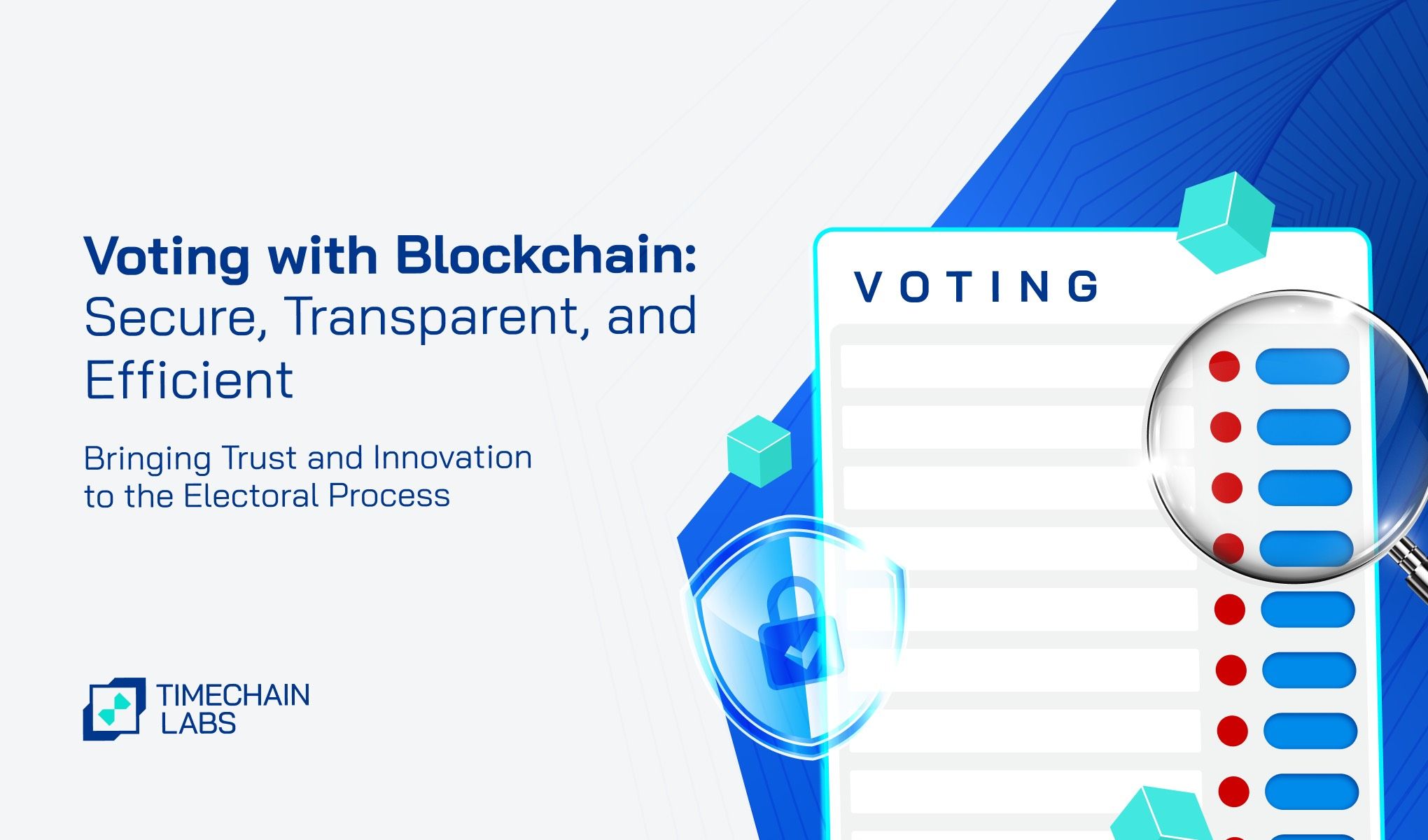In recent years, blockchain technology has emerged as a revolutionary tool with the potential to transform various industries, including finance, healthcare, and supply chain management. Among these applications, one area where blockchain can make a significant impact is in voting systems. The idea of using blockchain for voting is compelling due to its promise of enhanced security, transparency, and efficiency. But how exactly can blockchain address these longstanding issues of accessibility & transparency? This blog explores the transformative potential of blockchain in voting systems, offering insights for tech enthusiasts, policymakers, and the civic-minded alike.
Understanding Blockchain Technology
At its core, blockchain is a decentralized digital ledger that records transactions across a network of computers. Each transaction is grouped into a block, which is then added to a chain of previous transactions, forming a blockchain.
What Makes Blockchain Ideal for Voting?
Decentralization: Unlike traditional databases that are controlled by single entities, blockchain operates across a network of multiple nodes. This not only minimizes risks of failures but ensures no single party can manipulate the outcomes.
Immutability: Once data (in this case, a vote) is recorded on a blockchain, it's nearly impossible to alter. This permanent, tamper-proof nature of blockchain secures votes against fraud.
Transparency: Blockchain logs every transaction publicly and chronologically. In voting, this means every ballot cast is visible and verifiable by all, ensuring every voice is genuinely counted.
Security: Leveraging advanced cryptography, blockchain protects data against hacks and unauthorized changes, making electoral fraud and vote tampering things of the past
Enhanced Security and Trust in Elections
Blockchain’s robust security features mean that each vote can be traced to an individual voter without revealing personal identity. This process not only prevents duplicate votes but also shields voter privacy, boosting confidence among stakeholders in the election's fairness and results.
Making Voting More Accessible and Efficient
Blockchain can drastically cut down the traditional costs and logistical complexities of voting. By facilitating secure online voting options, blockchain opens up participation to those unable to reach polling stations, including the disabled, the elderly, and those living abroad, ensuring a more inclusive democratic process.
Real-World Applications: Blockchain in Action
- Estonia: The digital frontrunner, Estonia, integrates blockchain to safeguard its electronic voting systems, enhancing both security and trust across its digital governance platforms.
- Sierra Leone: In 2018, Sierra Leone pioneered blockchain in its presidential election, using the technology to tally and verify election results transparently.
- West Virginia, USA: In the 2018 midterms, West Virginia rolled out a blockchain-based app for overseas military voters, promoting participation without compromising security.
Overcoming Challenges: The Road Ahead
While blockchain presents a groundbreaking solution, its implementation is not without hurdles:
Technical and Infrastructure Needs: Deploying blockchain voting requires substantial tech infrastructure and expertise. Governments must invest in education and training to build these sophisticated systems.
Building Public Trust: To adopt blockchain widely, voters must understand and trust the technology. Ongoing education and transparent communication are crucial.
Navigating Legal Frameworks: Integrating blockchain into official voting processes must align with legal standards. This calls for updated regulations that accommodate the nuances of blockchain technology.
Embracing Blockchain for a Better Democracy
The journey to integrate blockchain into voting systems is just beginning. With its potential to enhance security, increase transparency, and expand accessibility, blockchain stands to fundamentally change how democracy operates in the digital era. By addressing its challenges head-on, we can harness this technology to not just improve but transform electoral processes worldwide. Let's step forward into this promising future together—explore more, engage in discussions, and participate actively in shaping this innovation. For democracy to thrive in the digital age, embracing such innovative solutions is not just an option; it's a necessity.
Do you think blockchain is the future of voting? What are your concerns or expectations regarding digital voting systems? Share your thoughts with us & join our forum discussions by signing up for our newsletter to dive deeper into the future of digital governance.
